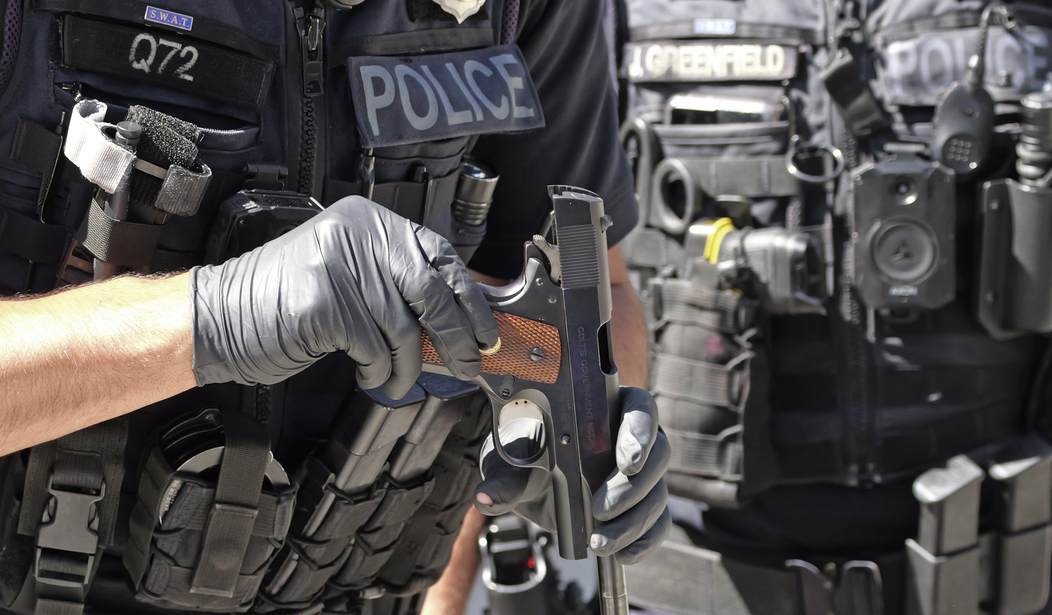In fact, at this point it seems fair to say the state office established by Democratic lawmakers in 2021 isn’t doing much of anything at all… except spending money on salaries, office equipment, and other items instead of pushing out grants to anti-violence programs across the state.
The Office of Gun Violence Prevention was one of several pieces of gun-related legislation approved after the Boulder supermarket shooting in 2021, and was funded to the tune of $3-million in its first year. As KUNC reports, the goal was for the newly-created state office to hit the ground running and distribute at least $50,000 in grants within the first twelve months, but now the office has been up and running for more than 18 months without issuing a single grant to any group trying to stem the growing rate of violent crime in cities like Denver and Aurora.
Colorado lawmakers touted the Office of Gun Violence Prevention as one of the first examples in the country of a state government creating a dedicated office to focus on the issue.
“Since no other state has an office similar to this, we will be the model,” State Rep. Tom Sullivan, D-Centennial, said as he convinced lawmakers to create the office in 2021. “We will have already been established and thus first in line to apply for the grant programs and resources from the feds.”
But 18 months later, the Office of Gun Violence Prevention has yet to ask the federal government for any money.
So the office is not only hanging on to the millions of dollars budgeted towards violence reduction efforts. It hasn’t even applied for any of the hundreds of millions of dollars in federal grants that were approved as part of the gun bill signed by Joe Biden earlier this year. Meanwhile, the guy in charge of the state office is still drawing his six-figure paycheck.
Jonathan McMillan started leading the Office of Gun Violence Prevention in May.
But his name and photo still aren’t on the agency’s website yet.
KUNC attempted to interview McMillan a few weeks after he started in the spring, but his staff said he was still getting acclimated and wasn’t ready for interviews.
When KUNC reached out again last month in the wake of the Club Q shooting, the office declined again and said that an interview would be outside of its “purview.”
The lack of public outreach has left some of the office’s architects, including Rep. Sullivan, frustrated.
McMillan has made a few public appearances since he started. He did speak on a panel about criminal justice reform last month at the University of Colorado.
“You’re not going to be able to arrest or incarcerate yourself out of violent crime, it’s just not going to happen,” he said. “We need to make sure that we’re focused on the human condition that is creating the circumstances that people commit crimes, especially violent crimes to themselves or others.”
Well, I don’t know about that. Yes, we need to go beyond just slapping another gun control law on the books and proclaiming that it will make a difference, but there’s also value in strategies like targeted deterrence that focus on the most prolific offenders in the most violent hotspots of any given city. But even if McMillan doesn’t believe that law enforcement-based strategies are effective at reducing or preventing crime, that doesn’t explain why his office has been moving at a glacial pace in identifying and helping to fund those programs that he believes will make a difference.
That help is desperately needed. Colorado lawmakers have imposed a series of restrictions on law-abiding gun owners over the past decade; from universal background checks and a ban on “large capacity” magazines to “red flag” laws and the demise of the state’s firearm preemption law, which has allowed localities and counties to impose their own anti-gun ordinances on residents. All the while, however, violent crime in the state has continued to get even worse.
Murders and aggravated assaults with firearms have increased significantly in major Colorado cities. Denver7 in partnership with Newsy has compiled and aggregated data from the past few years about the use of firearms in crimes.
The data, which comes from Jacob Kalpan’s concatenated files: NIBRS data from 1991-2021, shows an 80% increase overall in murders involving guns in nine metro areas over the past three years.
Denver experienced a 74% increase in gun murders between 2019 and 2021, jumping from 46 to 80 in that timeframe.
Aurora’s firearm homicides doubled in that same timeframe, going from 16 to 32. Colorado Springs also saw an increase of 28%, going from 18 firearm murders in 2019 to 23 in 2021.
“We looked at the data in the state of Colorado, and [guns] were second as it comes to cause of death. Number one would be drug overdose. So, it’s a problem that we really have to address in the state,” said Sen. Rhonda Fields, D-Arapahoe County.
It’s a problem that Democrats like Fields have been addressing on an almost yearly basis since 2013, but it’s only gotten worse thanks to their insistence that the best way to tackle violent crime is to go after the fundamental right to keep and bear arms. Coloradans have been living (and dying) with the results of these misguided and fruitless efforts for years, and things are likely to get even worse next year, unfortunately, as Democrats are eyeing up even more infringements on Second Amendment rights in the name of fighting crime; including raising the age to purchase a firearm, expanding the use of the state’s “red flag” law, and potentially even pushing for a complete ban on so-called assault weapons. Expect to see more money thrown at the Office of Gun Violence Prevention as well… just don’t expect that any of these proposals will do anything to take a bite out of crime.









Join the conversation as a VIP Member